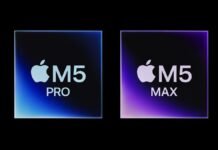Save StorySave this storySave StorySave this story
Suddenly, and not long ago, our dearest tech industry leaders began to suggest caution. Sam Altman said that AI is in a bubble “for sure,” albeit one formed around “a kernel of truth.” Mark Zuckerberg said an AI bubble “is quite possible,” though “if the models keep on growing in capability year over year and demand keeps growing, then maybe there is no collapse, or something.” Even Eric Schmidt is saying to calm down about artificial general intelligence and focus on competing with China.
The question everyone wants an answer to is: How will the bubble pop? Will we wake up and realize that we don’t really want to talk to LLMs anymore? Will someone find a way to build AI tools at one-thousandth the price, letting a thousand ChatGPTs bloom? Are we going to check the news one day and see those photos of stock traders yelling to each other on the floor of the exchange as tech companies’ stock prices blink bright red? My answer is: I have no earthly idea. But I really, really hope that, someday soon, AI becomes … normal.
I love normal technologies. They come with manuals. They change periodically, but you can build craft and professional skills around them. Bubble technologies change constantly, and there is always a threat that they will either destroy society (bad) or make everyone besides you wealthy (worse). There are many ways to forecast when a technology is becoming normal—price-to-earnings ratios and other boring stuff. The metric I use is the C/B ratio: conferences to blogging. If people are steadily attending conferences about a subject, it is not normal yet. If they’re mostly blogging about it, it is. I made this up, but I assure you it’s predictive.
I work with AI all day long, and right now there are so, so many conferences and gatherings and not that many good, boring technical blog posts. The tech industry loves conferences, because our product is so abstract that it’s hard for us to figure out where we sit in the nerd-chimp hierarchy. This is why VC firms are so often sponsoring get-togethers; they allow for pheromonal exchanges and dominance displays, usually enacted with PowerPoint. Invoke the Chatham House Rule if you’re feeling naughty.
People sometimes talk about the golden age of blogging but less about why people blogged: No one had money, and nothing is cheaper than putting words online. When the money flies to money heaven, and the startups become enddowns, the conference budgets are often the first thing to go. Nerds still want to talk their nerd talk, though. That’s when they start posting—it’s the only way to figure out who you are. Eventually, AI’s C/B ratio will start to tip blogward.
Not yet, though. We may have a ways to go. The globalized economy has become, out of expedience and greed, a world-spanning suspension bridge, hung off a few giant anchorages like OpenAI and Nvidia and Google, bolstered by promises of planetary AI transformation—and if one of those anchorages were to falter, just a little, and the promises fail to materialize, maybe the cable would sag and the whole bridge would crumble, and all the AI startups (including mine) would fall into the sea. Constantly anticipating this is just one of the many things that has made 2025 so fun.
I know I should dread this. But maybe when the crash comes it’ll look like the dotcom crash: A Pets.com or two gets razed to the ground, but the new infrastructure remains, and we humans spend years—decades—weaving it into our systems. I was there for the dotcom crash. I could barely make rent, but it was delightful. I attended tech salons at people’s apartments. The price of admission was a six-pack. I switched to Linux and no one cared. I blogged day and night, as free as a bee. All I could do was read O’Reilly books, learn to code, and hang with friends. What a slice of heaven. And tech became less magical—more normal, more boring. Not driving culture, but reflecting it.
What will it be like when AI is normal and boring? Well, the magic show will be over. You won’t have those moments of awe and wonder, like when ChatGPT told you dogs in Slovenia can talk, or Dall-E showed you your first sexy Pikachu. Yes, giant companies will continue to have the biggest and best AI, and they’ll still use it primarily to enhance the shopping experience and sell banner ads frictionlessly. And yes, we’ll continue to see tons of glazed AI-generated videos showing large-breasted human-cat hybrids abandoning their crying kittens. I’m sure we’ll see tremendous advancements in breast generation.
But then there’s everything else. We nerds have to learn how to teach people about LLMs, about how to put guardrails on AI projects and not just count on OpenAI to do it for us. We’ll have to ship products, and make smarter chatbots, and help people use these tools in good ways, even as other people are using ChatGPT to automate their dating lives. We’ll have to figure out where vibe coding is good and where it’s dangerous. And we’ll have to do it all while the world melts, both cognitively and glacier-ly, knowing that AI is contributing to that melt. On one side you’ve got these new human-impersonating machines that spew words, images, videos, and sounds by the millions per minute, and on the other you’ve got 8 billion agitated primates with access to weapons. The entire human commons is about to become a Superfund site, and the people who made the mess will move on to quantum computing. Once the frenzy fades, there’s just going to be a lot to do, and less sovereign wealth with which to do it.
Nobody with a mutual fund is likely looking forward to that day, and people without mutual funds definitely aren't. But, in one way, I am. Because it’s when the real nerds can come out. These are the nerds who love the tech, who hack around on the weekends. But since there are no conferences, and no one else wants to hear about it, they start a little newsletter—not a “10 important links” newsletter but a “10 extremely long paragraphs on obscure subjects” newsletter—or jump on open source projects and start fighting among themselves, which is one of the greatest forms of entertainment. I have hope and faith in weirdos doing weirdo things. I want to see people use AI to create new human languages and then start speaking them with their friends, or figure out how to run an LLM on a digital greeting card. I hope people share what they learn as they go. When the bubble is big, every idea feels like a billion-dollar idea. I yearn for cheap ideas from strangers.
I’ve felt so alienated from tech over the past couple of years. Part of it is the craven authoritarianism. It dampens the mood. But another part is the monolithic narrative—the fact that we live in a world where there seem to be only a few companies, only a few stories going at any time, and everything reduces to politics. God, please let it end. Give me glut, give me mess, give me a million incomplete open source projects and a billion Saturday-night blog posts about how to play with these toys. Lord, fill my feed reader. People often wonder how to get back to the vibes of the early, heady days of the internet. It’s easy: Crash the global economy and leave lots of young people with keyboards and spare time. Make it boring. That’s what’s interesting.
The good news is that right now I think we’re on our way. After AI is normal, a few conferences will go on, of course—often scruffier, in lesser venues. It’ll still be a huge industry, just not the only industry. People will still have the same light in their eyes. They’ll stand up with their undesigned, clunky decks, and say: Look what I made! And it’s not money.

































